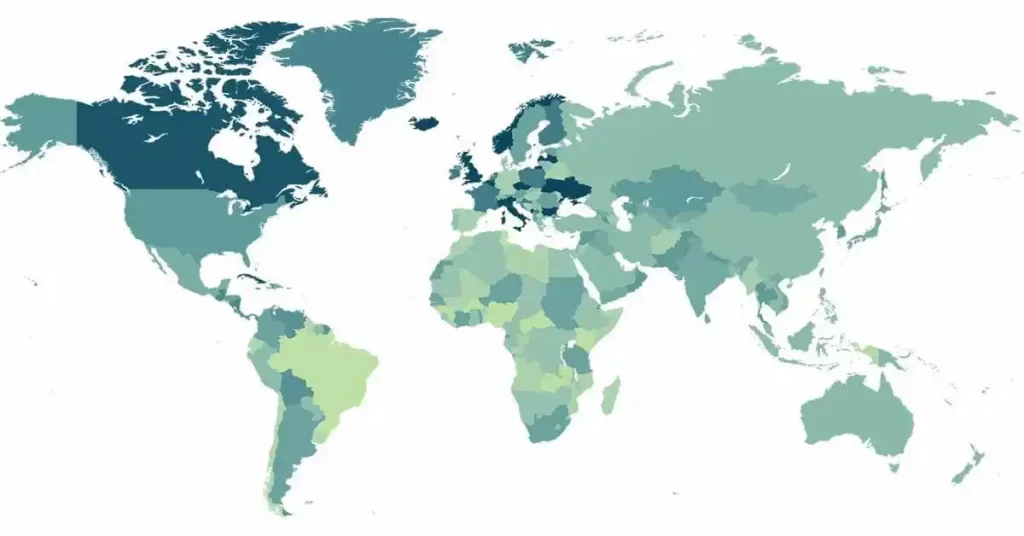To keep a business thriving, you need a steady stream of cash flow and working capital. It’s common for businesses to face slow periods where sales dip and funds are tight. During these times, you might consider exploring external funding sources. One popular option for small businesses is a merchant cash advance.
What is Cash Advance Loan?
A cash advance loan allows you to borrow money against your future income. Essentially, you are “advancing” the future income you haven’t yet earned. Unlike traditional loans, you’re not just borrowing, you’re selling a portion of your future revenue in exchange for immediate cash.
How Personal Cash Advance Loans Work?
With personal cash advance loans, you borrow against your next paycheck. Upon your payday, the lender will automatically debit the amount you owe from your checking account, including any additional fees. Often, lenders require you to write a post-dated check for the borrowed amount plus fees, which they cash on your payday.
The fees associated with cash advance loans can be exorbitantly high, often leaving borrowers in significant debt. Because of their steep costs and terms, these loans are sometimes labeled as predatory. However, they can be a crucial source of immediate funds, if you lack access to other credit options.
Merchant Cash Advance Loans
A merchant cash advance loan is an option for companies in need of quick cash. This particular kind of cash advance is intended mostly for businesses that want rapid access to funds in order to meet urgent financial needs.
What is Merchant Cash Advance?
A merchant cash advance offers a quick, short-term funding solution when traditional bank financing is unattainable. This type of financing involves borrowing against future credit card sales and you typically repay it, along with any associated fees, within six to 12 months.
Qualifying for a Merchant Cash Advance
To qualify for a merchant cash advance, your business needs to generate regular daily credit card transactions from customers. You must also demonstrate a history of at least four months of credit card sales. Merchant cash advance providers often set a minimum monthly credit card sales requirement, usually between $2,500 and $5,000, depending on the advance amount. This requirement helps the lender ensure that your business can handle the repayment of the advance.
“If you’re looking to establish credit, the Destiny Mastercard is an excellent option because it keeps things straightforward.”
How does Merchant Cash Advance Work?
Merchant cash advance are a viable option for businesses that primarily generate revenue through debit and credit card sales, such as retail stores, service shops and restaurants. However, there are also ways to secure an advance, if your business does not have high card sales.
“While searching for other options, you should avoid an air loan because it is a type of mortgage fraud in which a broker creates a borrower and a property in order to deceive lenders and earn illegally.”
Types of Merchant Cash Advance

1. Traditional Merchant Cash Advance
In a traditional merchant cash advance, your business receives an upfront sum. You repay this advance by automatically remitting a set percentage of your daily or weekly sales to the cash advance company.
This payment method is referred to as a “holdback.” The repayment period varies: the higher your sales, the quicker you repay the advance. It’s important to note that encouraging customers to pay in cash to reduce sales volume and thus repayment, is a breach of contract that could lead to legal issues.
2. ACH Merchant Cash Advance
The ACH merchant cash advance provides upfront cash, which your business repays through fixed daily or weekly withdrawals from your checking account via an Automated Clearing House (ACH) system.
This repayment method does not fluctuate with sales volumes, making it predictable but potentially risky if your business experiences a cash shortfall, as it could lead to missed payments.
Cost of Merchant Cash Advance
The fees associated with merchant cash advance depend on the perceived risk by the lender. Typically, the factor rate ranges from 1.2% to 1.5%. For example, if you take out a $40,000 advance with a 1.5% interest rate, you would end up paying back $60,000, including $20,000 in fees. This makes merchant cash advance significantly more expensive than traditional loans and can potentially lead to a cycle of debt, if additional advances are taken out to cover previous ones.
Merchant Cash Advance Pros & Cons
Pros |
Cons |
| Immediate Cash Access | Extremely High APR |
| You gain access to cash almost immediately. | Interest rates can soar as high as 200%, making it one of the most expensive financing options. |
| Easy Repayment Method | Frequent Repayments Can Strain Cash Flow |
| Repayments are made automatically as a percentage of daily or weekly sales, simplifying the process. | The constant deduction from sales can significantly impact your business’s operational cash flow. |
| Accepts Low Credit Scores | No Credit Score Improvement |
| Businesses with lower credit scores are eligible, making it accessible for those with less than perfect credit histories. | Since these advances are not reported, they do not help in building or improving your business credit score. |
| No Usage Restrictions | Restrictive Agreements |
| There are no limitations on how you can use the funds. | The terms can be restrictive and more binding than other types of loans, with specific stipulations on payment and operations. |
| No Collateral Required | Not Available for All Businesses |
| You don’t need to provide any collateral to secure the advance. | Only businesses that accept credit card payments can qualify, excluding many small businesses. |
This chart outlines the key pros and cons of merchant cash advance, helping you understand what to expect when considering this type of financing.
“Merchant cash advances provide businesses with fast access to capital but they should be approached with caution due to their high costs and potential to create cycles of debt. It’s essential for business owners to weigh these immediate financial benefits against the long-term financial health of their company.”
Alternatives to Merchant Cash Advance
If the high costs and risks of merchant cash advance make you hesitant, there are several other financing options that might fit your small business needs better. Below, we outline a few alternatives that offer more flexibility and potentially lower costs.
Business Line of Credit
A line of credit functions similarly to a credit card. You get approved for a set limit and can borrow up to that limit as needed during the term. You only owe what you’ve borrowed, and you can repay and reborrow as often as necessary within the credit limit.
Key Features
- Credit Limits: Typically ranges from $2,000 to $500,000.
- Approval Time: Usually less than a week.
- Repayment Terms: Between three and 12 months.
Short-term Loans
Short-term loans are unsecured loans provided by private lenders, not banks. These loans generally offer more favorable interest rates compared to merchant cash advance and include a review of your credit history.
Key Features:
- Loan Amounts: Up to $500,000.
- Approval Time: Often less than a week.
- Repayment Terms: Three months to three years.
Payment Processor Financing
Companies like Square or PayPal offer financing options for businesses that use their payment processing services. This financing is typically easier to qualify for if you’re already a customer.
Key Features:
- Loan Amounts: Generally under $100,000.
- Cost: Factor rates range from 1.1% to 1.16%, which are lower than those for merchant cash advance.
Application Process
Applications are straightforward and managed through your online account with the payment processor, making it a convenient option for businesses already using these services.
These alternatives to merchant cash advance provide different benefits and may be more suitable depending on your specific business needs and financial situation.
FAQs on Merchant Cash Advance
What is a Merchant Cash Advance Blursoft?
A merchant cash advance Blursoft is a financial solution for businesses needing quick access to funds. It leverages future credit card sales for cash today.
How Can I Get Leads for Merchant Cash Advance?
Generating leads for merchant cash advance involves targeting businesses that primarily deal with credit and debit card transactions, often in the retail, service or restaurant sectors.
Is a Merchant Cash Advance Legal?
Yes, a merchant cash advance is legal. It’s classified not as a loan but as a purchase and sale of future income. Therefore, it doesn’t adhere to the same regulations as traditional loans and can last up to a year without falling under typical lending laws.
Why Consider a Merchant Cash Advance?
- Immediate Funding: You can access funds within 24 to 48 hours.
- No Collateral Required: There’s no legal liability if the business fails and the advance isn’t fully repaid, protecting your assets.
- Automatic Repayments: Eliminates the risk of late fees as repayments are deducted automatically from credit sales.
- Flexible Payment Structure: Payments adjust based on sales volume, beneficial during slower business periods.
- Minimal Paperwork: Applying requires less documentation than traditional loans.
- Quick Availability: It’s an option when you need quick cash or can’t qualify for a traditional bank loan.
Do Merchant Cash Advance Impact Your Credit Score?
While merchant cash advance don’t typically affect your business credit score, as lenders focus less on credit history, they may perform a credit check. Ensure you know whether it’s a hard or soft check, as a hard check might impact your credit score.
How to Apply for a Merchant Cash Advance?
Applying for a merchant cash advance is straightforward, whether online or in-person. You’ll need to provide:
- Business contact information
- Your name and Social Security number
- Business tax ID
- Recent credit card processing and bank statements
- Business lease copy
- Proof of citizenship
- A blank check or your bank account details
Approval can be swift, once you agree to the terms like advance amount, repayment schedule and fees, the funds are quickly deposited into your bank account.
How to sell Merchant Cash Advance?
To successfully sell merchant cash advance, focus on educating potential clients about the benefits and quick access to funds that a cash advance provides. Highlight the flexibility of repayment based on sales volume and the minimal qualification requirements. Networking with small business owners, particularly in industries like retail and hospitality that heavily rely on card transactions, can also be effective. Utilizing online marketing strategies such as SMM OR SEM and partnering with business consultants can help expand your reach.
Are Merchant Cash Advance a Good Idea?
Merchant cash advance can be beneficial for businesses in need of quick funding without the option for traditional bank loans. They are particularly useful when cash flow is a priority and the business has a high volume of credit card transactions. However, due to their high costs and the potential to create a cycle of debt, they should be considered carefully and other less expensive options should be explored first.
Are Merchant Cash Advance Tax Deductible?
Yes, the fees or “factor rates” associated with merchant cash advance are typically considered as a business expense and are therefore tax deductible. However, it’s important to consult with a tax professional to ensure proper reporting and compliance with the IRS regulations.
Can Capital Offer Merchant Cash Advance?
Can Capital provides various funding solutions for small businesses, including merchant cash advance. They offer quick approval and funding processes, making it a viable option for businesses looking for rapid access to capital.
How Much Do Merchant Cash Advance Brokers Make?
Compensation for merchant cash advance brokers can vary widely depending on the volume of business they handle and the commission structures set by the funding companies. Brokers typically earn a commission based on a percentage of the cash advance they facilitate. This can range from 1% to 10% of the advance amount, leading to potentially lucrative earnings, especially in high-volume deals.



